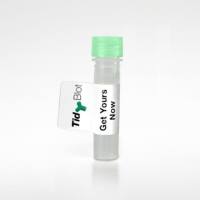Sequence-Specific Priming as a Rapid Screen for Known Mutations
互联网
694
Mutations in a large number of genes have now been identified that ultimately alter the expression or function of the corresponding protein, thereby inducing a particular disease state. These mutations may be found frequently in the disease population, but may also be present to some extent in normal individuals. On the other hand, alterations of the prototypic or wild type allele, again affecting protein expression or function, can result in some level of protection against certain diseases. The latter situation is well-exemplified by an allele of the CCR5 chemokine receptor gene, CCR5△32 , which does not encode a functional protein on cell surfaces (see 1 for review). Since CCR5 behaves as a coreceptor with CD4 for macrophage-tropic strains of HIV-1, homozygotes for the CCR5△32 allele are highly, though not completely, protected against HIV-1 infection. Similarly, a single base change in the CCR2 gene, CCR2-64I , is associated with delayed progression to AIDS after HIV-1 infection (2 ).









